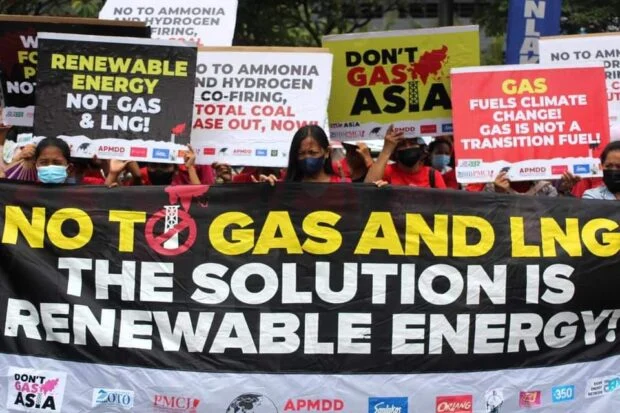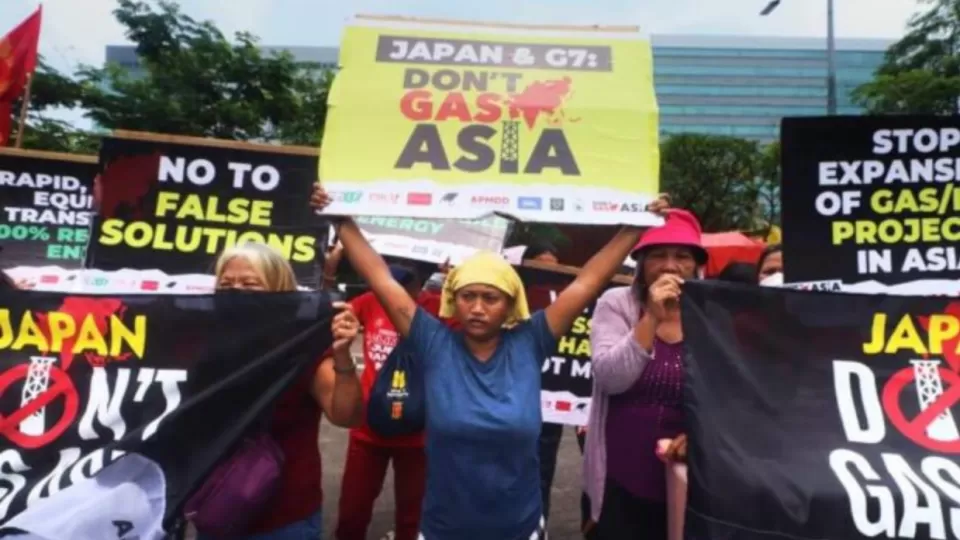May 19, 2023
MANILA — The Philippines was among the countries in Asia where protests took place to urge Japan – this year’s head of the Group of Seven (G7) rich nations – to mark an end to its public financing of fossil fuels.
The Asian Peoples’ Movement on Debt and Development (APMDD) on Thursday said rallies were held in the Philippines, Vietnam, Thailand, Nepal, Pakistan, Sri Lanka, Japan, among others, ahead of the G7 Leaders Summit in Hiroshima from May 19 to 21.

Photo from the Asian People’s Movement on Debt and Development
Members of the Philippine Movement for Climate Justice (PMCJ), Sanlakas, Oriang, Aniban ng Manggagawa sa Agrikultura, and Kabuhayan Kalusugan Katiyakan sa Paninirahan trooped outside the Japanese Embassy in Manila, trumpeting the call for G7 members to meet their climate finance obligations and end their public financing of fossil fuels.
“The rallies called out the government of Japan for being among the world’s leading fossil fuel investors. They also called out the government’s lackluster stance towards phasing out fossil fuels and its insistence of promoting fossil gas and false solutions, like hydrogen and ammonia technology,” the APMDD said in a statement.
Aside from Japan, other G7 members are Canada, Italy, Germany, France, United Kingdom, and the United States. All of them, according to the APMDD, are major fossil fuel financiers.
According to Oil Change International, Japan – as the world’s largest public financier for oil, gas, and coal projects – contributed an average of $10.6 billion per year between 2019 and 2021.
The non-governmental organization also pointed out that, “The G7 made a groundbreaking commitment to end international public finance for fossil fuels by the end of 2022 and instead prioritize finance for clean energy.”
A Reuters report in April said the G7 nations agreed to the call to cut gas consumption and increase electricity from renewable sources while speeding up the phaseout of fossil fuels.
But, it noted, the G7 members could not settle on a specific date to pull the plug on coal power.
Dangers for PH
“Japan and the G7’s insistence on fossil gas is dangerous, to say the least, for the communities in the Philippines,” PMCJ President Ian Rivera said as quoted by the APMDD.
Rivera cited the planned liquified natural gas terminal project in Batangas – a project funded by the Japan Bank for International Corporation.
This, he noted, is “already causing severe harm in the region before construction has even been finished.”
“Investments in false solutions are just a diversion that furthers us from what we need to enable the clean energy transition,” Rivera added.


